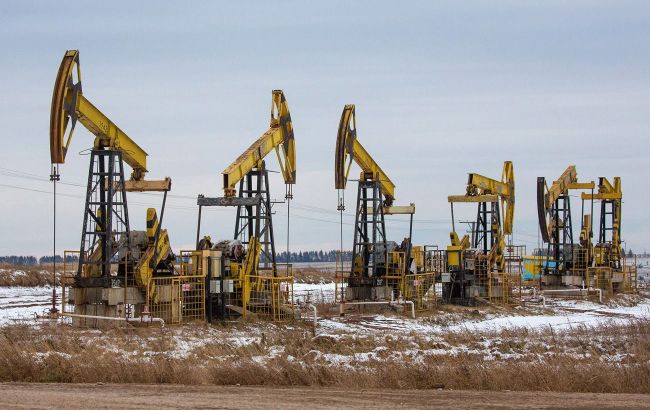Russia notably boosted oil and gas sales revenue - Bloomberg
 Photo: Russia increased revenues from oil and gas sales by $10 billion (Getty Images)
Photo: Russia increased revenues from oil and gas sales by $10 billion (Getty Images)
Russia's revenues from the sale of oil and gas in February increased by over 80% compared to the previous year, surpassing 10 billion dollars. This growth is attributed to the rise in domestic oil prices, as Russian producers weathered Western sanctions, reports Bloomberg.
According to the Ministry of Finance of the Russian Federation, in February, revenues to the budget from oil and gas taxes amounted to 945.6 billion rubles (10.4 billion dollars). According to Bloomberg's calculations based on this data, taxes on oil and oil products, which account for 84% of all hydrocarbon revenues, more than doubled.
Oil taxes were calculated based on the average price of Urals, Russia's main export blend, at $65 per barrel. This is higher than $50 per barrel a year ago.
Russia's oil and gas sectors are key sources of revenue for the state treasury, which is under pressure from increasing military expenses related to the invasion of Ukraine.
To limit the aggressor's income from oil sales, Western countries imposed sanctions, which in February 2023 led to a drop in the price of Urals oil below $50 per barrel.
Then, the European Union banned most of the maritime import of oil and oil products from Russia, and the Group of Seven (G7) countries imposed restrictions on the barrel price at $60 for oil shipments from Russia. Although buyers from other countries can freely purchase Russian barrels at a higher price, they are prohibited from using Western services such as insurance and delivery for these deliveries.
Moscow limited the impact of price restrictions by utilizing a vast shadow fleet of tankers and working with non-Western buyers, intermediaries, and service providers.
However, since November, the United States and their allies have increased control over compliance with the price limit, imposing sanctions on several vessels and traders for violating the restrictions. The tougher stance once again increased the discount of Urals to the benchmark Brent grade.
"But to shield cash flows to the budget, Russia has activated a so-called price floor mechanism, ordering producers to pay taxes based on an artificial $15-a-barrel discount for Urals to Brent. The budget received the money in February. The actual discount at which producers sold their Urals cargoes averaged more than $18 at Russian ports in January," the agency reports.
In February, Russia also paid 127.9 billion rubles in subsidies to its oil refining enterprises for the sale of diesel fuel and gasoline on the domestic market. These payments, which typically reduce revenues from oil production, partially compensated oil refiners for the difference between fuel prices in the domestic market and abroad.
Bloomberg also notes that starting from 2019, Russia gradually reduced export duties on oil and oil products, and from this year, they have been completely abolished. At the same time, the government increased the oil extraction tax to offset the loss of revenues from the export duty. As a result, Russia's revenues from the oil extraction tax reached the highest level in almost two years.
Sanctions and export of Russian energy resources
Recently, it has been reported that the overall export of Russian oil has reached its highest level in four months.
Meanwhile, after a two-month hiatus, India has resumed the import of Russian oil, specifically Sokol.
Two oil tankers ceased their activities near the shores of Greece just days after the United States imposed new sanctions on 14 Russian vessels. According to Bloomberg, the vessels NS Creation and Zaliv Amurskiy halted the transfer of oil cargoes in the Laconic Gulf, south of Greece.

